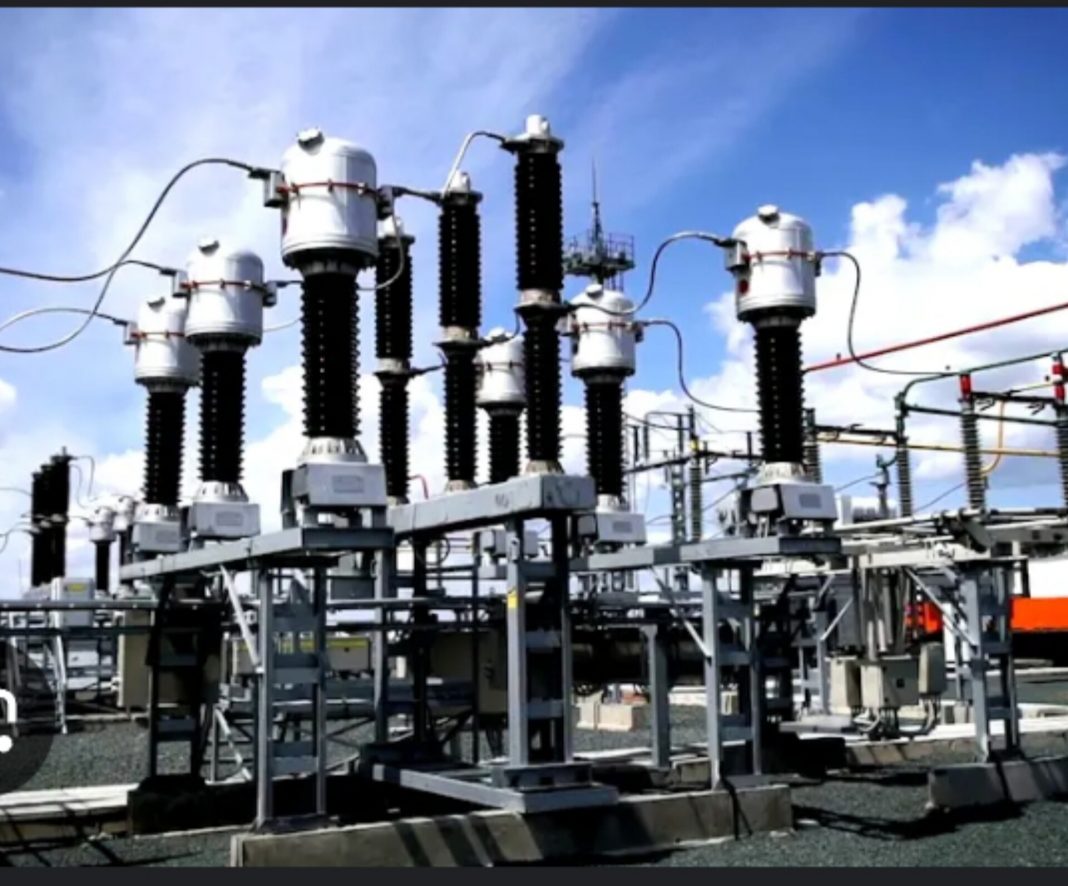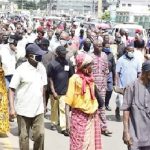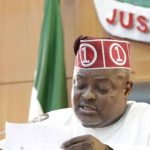...To get all news updates, Join our WhatsApp Group (Click Here)
Also Join our WhatsApp Channel (Click Here)
Despite the huge investment in the power sector, the national grid collapsed about 105 times under the administrations of President Bola Tinubu and his predecessor, Muhammadu Buhari, The PUNCH reports.
Findings on penultimate Sunday showed that Nigeria secured about 10 loans worth $4.36bn from the World Bank over the past decade to address key challenges in its power sector.
Although not all 10 World Bank loans have been disbursed completely, the Federal Government and other multilateral agencies have supported the country’s power sector financially.
They have provided billions of naira to revamp the industry but despite these funds, the sector is still struggling, witnessing incessant grid collapses, which has repeatedly plunge the country into widespread blackouts.
Both Buhari and Tinubu, members of the All Progressives Congress, promised to turn things around positively in the power sector.
However, it appears the challenges of the power sector overwhelmed the Buhari administration, which took over former President Goodluck Jonathan of the Peoples Democratic Congress.
Data obtained from different sources, including the Nigerian Electricity Regulatory Commission, showed that the grid collapsed approximately 93 times during the eight-year rule of Buhari, from June 2015 to May 2023.
The national power grid, according to NERC, is a vast network of electrical transmission lines that link power stations to end-use customers across the country and it is designed to function within specific stability boundaries, including voltage (330kV ± 5.0 per cent) and frequency (50Hz ± 0.5 per cent).
“Any deviation from these stability ranges can result in decreased power quality and, in severe cases, cause widespread power outages ranging from a partial collapse of a section of the grid to a full system collapse.
“When the electricity demand is higher than the supply, the grid frequency drops. Conversely, if supply surpasses demand, the frequency increases. In reaction to the grid operating at a frequency outside of the normal operation range (especially when the frequency is too low), safety settings on generation units may cause the units to shut down.
“This often exacerbates the frequency imbalance on the grid thereby causing more generation units to shut down resulting in a full or partial system collapse,” the regulator explained.
The PUNCH reports that anytime the grid collapses, the majority of electricity consumers are thrown into darkness, affecting businesses and social activities.
Industry data showed that under Buhari, the grid collapsed three times in 2015, 28 times in 2016, 24 times in 2017, 13 times in 2018, and 11 times in 2019.
The grid frequency appeared to improve from 2020 to 2023 as the grid collapsed 14 times within this period until Buhari vacated office on May 29, 2023.
It was observed that the Tinubu administration carried on with the grid collapse cases, with three of such incidents occurring between June and December 2023.
Nigerians endured more nationwide blackouts on September 14, 2023 when the grid collapsed due to a fire on a major transmission line.
On September 20, 2023, The PUNCH reported that Nigeria witnessed another round of widespread blackouts across the country the preceding day as the national power grid collapsed again, making it the third grid collapse in about five days during that period.
Since January 2024 till date, the grid has collapsed about nine times. Last week, the grid collapsed three times with its attendant blackouts, sparking reactions from Nigerians. As of now, the Tinubu administration has recorded no fewer than 12 collapses in 16 months.
On Saturday, the national grid collapsed – third in the week – as power generation went off around 8:16am. This was after the grid tripped off on Monday. It went off again on Tuesday when it was being restored.
Nigeria secured about 10 loans worth $4.36bn from the World Bank over the past decade to address the power sector challenges.
The loans, which are aimed at supporting infrastructural development, distribution reforms, and renewable energy initiatives, are at different stages of progress.
While some are still disbursing, others have been signed but are yet to begin disbursement. However, one loan approved in 2014 has been terminated.
Findings by The PUNCH from data sourced from the global financial institution revealed that four loans, amounting to $2bn, have been signed but are yet to disburse any funds.
These include the Sustainable Power and Irrigation Project, valued at $500m, which was signed in September 2024, and three components under the Nigeria Distributed Access through Renewable Energy Scale-up Project, totalling $750m, approved in December 2023.
Five loans are actively disbursing funds, though large portions of their allocations remain undrawn.
These include the Power Sector Recovery Performance-Based Operation, the North Core Regional Power Interconnector, the Nigeria Electrification Project, and the NG-Electricity Transmission Project.
Together, these projects represent $2.06bn, or 47.25 per cent of the total loan portfolio.
Out of the five loans currently under disbursement, Nigeria is already making repayments on three of them.
One example is the Nigeria Electrification Project, which has disbursed $269.67m from a total allocation of $350m.
Similarly, the North Core Regional Power Interconnector has released $15.74m from a $27.4m facility. The NG-Electricity Transmission Project, with two components worth $486m, is also disbursing funds while repayments are ongoing.
These projects reflect the country’s efforts to balance loan repayments with the need for critical infrastructure investment.
One project has been terminated. The Nigeria Power Sector Guarantees Project, initially valued at $125m, was cancelled on May 1, 2014, without any funds being disbursed.
The terminated project was aimed at improving electricity supply for consumers by supporting private sector-led investments in power generation and distribution.
It was designed to back key reforms in Nigeria’s power sector through a series of partial risk guarantees.
These guarantees were intended to support three key areas: greenfield Independent Power Producers’ projects, the privatisation of Generation Companies, and the turnaround of distribution companies.
However, this project was terminated, and nothing was disbursed by the World Bank. There was no available information on the reason for the termination.
The PUNCH learnt that World Bank loans were usually tied to targets, and failure to meet such targets would either lead to a delay in disbursement or outright cancellation of the loan.
Despite the World Bank’s funding support over the years, delays in disbursement remain a significant concern, as $2.96bn of the total $4.36bn are still undisbursed.
The largest disbursement so far has been recorded under the Nigeria Electrification Project, which focuses on improving rural and off-grid energy access. So far, $269.67m has been released from the $350m earmarked for the project.
Notably, a substantial portion of the loans was secured under President Tinubu’s administration, highlighting the government’s renewed push to revitalise the country’s energy sector.
Since Tinubu assumed office in May 2023, the World Bank has approved new electricity loans over $1.901bn, representing 44 per cent of the total loan portfolio over the decade.
In December 2023, Tinubu’s government secured $750m for the Nigeria Distributed Access through Renewable Energy Scale-up Project, a move aligned with the administration’s focus on expanding renewable energy.
Also, the Sustainable Power and Irrigation Project, valued at $500m, was signed in September 2024 to enhance power generation and agricultural irrigation.
While the loans reflect a strategic commitment to addressing Nigeria’s energy deficit through renewable energy and infrastructure development, the slow pace of disbursements raises questions about project implementation and the government’s ability to unlock the full potential of these funds.
Despite the loans, the Nigerian power sector still suffers incessant blackouts, metering gaps, and low access to electricity, especially in rural areas.
Many industries, small businesses, and companies, among others, have collapsed as a result of the poor supply of electricity in Nigeria. This is despite the privatisation of the successor power generation and distribution companies in November 2013.
Nigeria’s power firms generate and supply between 3,500 megawatts and 5,500MW of electricity to over 200 million citizens across the country.
There is the issue of low power supply. For instance, the grid delivers only 1,000MW to a city of 25 million people. By contrast, Shanghai, with roughly the same population, supplies more than 30,000MW at peak demand.
Consumers kick
In an interview with one of our correspondents, the Convener of the Electricity Consumer Protection Advocacy Centre, Princewill Okorie, expressed worry that electricity customers, especially those on estimated billing, continued to pay for darkness as the grid kept collapsing.
Okorie alleged that substandard equipment must have been used for power infrastructure.
According to him, the Nigerian Electricity Regulatory Commission and the Ministry of Power pay more attention to the distribution companies and their revenue, ignoring the rights of the consumers, especially in the area of metering.
He challenged the Federal Competition and Consumer Protection Commission, asking what it had been doing to protect electricity consumers.
“What is the Federal Competition and Consumer Protection Commission doing? Are they not the ones to understand the challenges of consumers and raise them? Rather than do that, they play to the hands of the Discos,” Okorie said.
He added, “Consumers don’t have electricity supply after you’ve raised their bills to over N200 per kilowatt-hour as Band A customers. Then, those who are not metered will be billed as if they have power supplies for 24 hours. The consumers are at the receiving end in all of these; their businesses have collapsed. How will they make money? The same consumer that is funding infrastructure; the same consumer that is funding metering, the same consumer that is paying the bill?
“What is the quality of materials used in building the grid? Who are the professionals that are building the grid? How can the grid be stable when transformers are connected to the grid at the weekend and at night without supervision? When substandard materials are being used all over, how can you build a grid that is stable?”
He suggested that stakeholders had to proffer solutions, with a monitoring committee to oversee happenings in the power sector.
“No representation for the consumers at the ministry; the consumers are seen as cash cows, their views are not sought,” Okorie submitted.
Also, consumers in the Federal Capital Territory called for the dismissal of personnel responsible for managing the grid.
According to a report by the News Agency of Nigeria, consumers residing in Kuje, Area 10, Gwagwalada, and surrounding areas voiced their frustrations over the frequent grid failures, urging the government to replace those overseeing it.
They expressed their weariness of repeated grid collapses and insisted that the government sacked the current managers.
A resident of Kuje, Bisi Afolabi, believes those responsible for managing the grid are not capable of handling the job.
According to him, since the grid frequently collapses, the government should dismiss those in charge and hire competent personnel.
Similarly, a barber, Samuel Maduka, expressed his disappointment with the grid’s management..
“The government should address this issue of constant grid collapses. If it means sacking everyone involved to resolve it, then so be it,” Maduka remarked.
Mrs Uduak Essien, a cold room owner in Gwagwalada, pointed out that despite the significant investments in the power sector, the grid continued to collapse.
“If the people in charge are not competent, they should be replaced with those who can manage the grid effectively,” she urged.
Public hearing
Baffled by the repeated cases of grid collapse, NERC is set to hold a stakeholders forum on Thursday.
The commission said the public hearing was in line with Section 48, subsection 1 of the Electricity Act 2023 (Amended).
According to a statement on its social media handles on Sunday, NERC stated that the hearing would be held at its Hearing Room, Fourth Floor, Plot 1387, Cadastral Zone A0O, Central Business District, Abuja, by 10 am prompt.
“In line with Section 48, subsection 1 of the Electricity Act 2023 (Amended), the Nigerian Electricity Regulatory Commission is mandated to conduct public hearings on critical issues relating to the Nigerian Electricity Supply Industry.
“The commission has noted with concern the recent escalating incidence of grid disturbances often leading to marked outage in several states thus reversing many of the gains recently achieved in reducing infrastructure deficit and improving grid stability.
“In this regard, the commission hereby invites NESI stakeholders, civil society organisations, and the general public to a hearing.”
L
NERC, in a similar development, expressed worry over the recent escalating cases of grid disturbances.
NERC said the incidents often led to marked outages in several states thus reversing many of the gains recently achieved in reducing infrastructural deficit and improving grid stability.
In a statement, the commission disclosed that Saturday’s outage was triggered by an explosion of a current transformer at the Jebba transmission station at 0815hrs and an associated cascade of power plants’ shutdown arising from the loss of load.
It added, “In line with the provisions of the Electricity Act 2023, the unbundling of the System Operator function (ISO) out of the Transmission Company of Nigeria Plc is ongoing with the expectation that an independent System Operator would engender more discipline in grid management and optimised investment in infrastructure.”
In pursuit of finding a permanent solution to the challenges of the national grid, the commission said it shall shortly conduct an investigative public hearing with a view to identifying immediate and remote causes of recurring incidents of grid disturbances and widespread outages.”The date and venue of the public hearing will shortly be announced in the national dailies and stakeholders are encouraged to participate,” NERC added.
Regional grids
The Minister of Power, Adebayo Adelabu, said last week that there was the need to have power grids in different regions or states to put an end to the incessant grid collapses.
The minister, who spoke while unveiling Hexing Livoltek in Lagos, said grid collapses were almost inevitable in Nigeria given the deplorable state of the country’s power infrastructure.
According to him, having multiple power grids in each region and state would ensure stability.
“We keep talking about grid collapse. Grid collapse, grid collapse, whether it’s a total collapse, partial collapse, or slight trip-off. This is almost inevitable as it is today, given the state of our power infrastructure, the infrastructure is in deplorable conditions, so why won’t you have trip-offs? Why won’t you have collapses, either total or partial? It will continue to remain like this until we can overhaul the entire infrastructure. What we do now is to make sure that we manage it,” he said.
The International Energy Agency said Nigeria’s grid continues to face issues due to aged infrastructure and vandalism.
Deterioration of power infrastructure increased dependency on backup generators for 40 per cent of electricity consumption in Nigeria.
In a report released recently, the NERC expressed concerns over the low overall availability factor of the 27 power plants in the power supply industry in Nigeria, saying the largest driver of plant unavailability in 2023 was mechanical outages.
“Approximately 38.04 per cent (4,802.80MW) of the total installed capacity of grid-connected plants was unavailable due to mechanical outages in 2023.
“The age of many of the power plants (as of December 31 2023, the average plant in the Nigeria Electricity Supply Industry is 21 years old) and challenges with the maintenance of generating units are the biggest driving factors behind the mechanical outages,” the report stated.
Other contributory factors to the challenges in the industry include a lack of liquidity at the upstream segment of the NESI, caused by the gross underpayment of generation companies’ invoices by distribution companies (market shortfall) and the government (unpaid subsidy costs).
“Without sufficient cash flows, GenCos cannot maintain their generation units, leading to extended outages. The liquidity challenges have also prevented operators of the privatised generation assets from recovering capacity that had been inoperable before privatisation,” the commission noted, listing gas supply as another major hindrance in the sector.
In 2023, the gross generation on the national grid was 36,710.38 gigawatt-hours, which translates to an average hourly generation of 4,190.68MWh/h (equation 7.2), the NERC disclosed.
In its recommendation, the commission said, “To manage the overall availability of plants on the grid, the System Operator must implement the provisions of section 22.3 of the Grid Code on scheduling outages in a way that does not put the grid at risk of low gross availability.
“Furthermore, Gencos must engage with the gas subsector to align outages on the gas infrastructure (e.g. pipeline maintenance activities) with planned plant outages.
You can get every of our news as soon as they drop on WhatsApp ...To get all news updates, Join our WhatsApp Group (Click Here)
Also Join our WhatsApp Channel (Click Here)

















